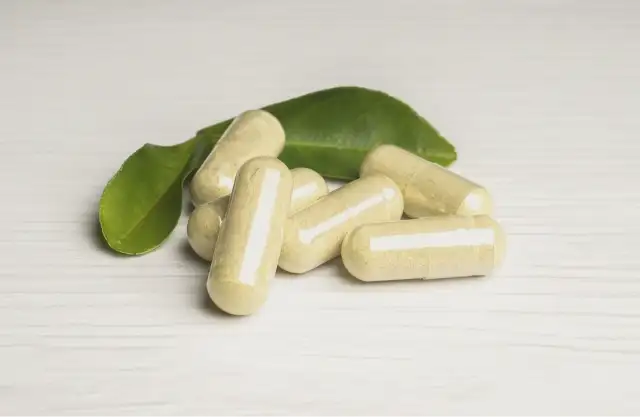The state of our hair speaks to our diet. Our hair requires specific nutrients to develop and remain strong, just as every other part of our bodies. Building blocks of a good diet help with development, strength, and hair structure. Hair may weaken, get brittle, or start to fall out without the right combination of minerals, vitamins, and proteins. Keeping a nutrient-dense diet helps you maintain the beautiful and strong quality of your hair by avoiding typical problems like thinning or breaking and so preserving healthy hair growth development.
Diet Affects Hair Quality
Like every other part of your body, hair depends on suitable nutrition to grow and stay healthy. The major protein in hair is keratin; it grows properly only in combination with vitamins, minerals, and other nutrients. A balanced diet can help reduce hair thinning and breakage and even stop hair loss that is too rapid for the development of hair. Without the right nutrients, your hair may become dry, brittle, or stop growing totally.
Key nutrients for hair health:
Proteins: Knowing that protein makes up hair, it makes sense that hair health depends on getting enough of it. A low-protein diet can cause delayed growth and fragile, brittle hair.
Iron: Red blood cells supply oxygen to hair follicles thanks in part to iron, which also stimulates hair growth. and stops loss. Anemia brought on by a shortage of iron has been connected to hair loss.
Vitamins A, C, D, and E: These vitamins help to produce healthy sebum, which maintains scalp moisture. Particularly vitamin C helps to produce collagen, so strengthening hair.
B-complex vitamins, especially biotin: Among the most well-known minerals for maintaining hair health is biotin. It promotes keratin production and might increase hair strength and growth.
Omega-3 fatty acids: Omega-3s promote scalp health and help to avoid dryness and flakiness, therefore supporting general hair growth.
Zinc: Hair tissue growth and repair use zinc in some capacity. It keeps the oil glands surrounding hair follicles in good operating order.
Specific foods that promote diet for hair growth:
Including the correct nutrients in your diet helps to improve hair condition and encourage growth. Some especially helpful foods are broken out here:
Egg: Filled with protein and biotin, eggs are also rather vital for the development of hair. They strengthen your hair by helping to manufacture keratin.
Fatty fish such as Salmon: Salmon and other fatty fish abound in omega-3 fatty acids, vitamin D, and protein, all of which boost scalp health and diet for hair growth.
Nuts and seeds: are high in selenium, zinc, and vitamin E, almonds and flaxseeds guard hair from oxidative damage and stimulate growth.
Avocados: Avocados are full of vitamin E and good fats, and they feed hair follicles and shield the scalp.
Berries: Great providers of vitamin C, berries also increase collagen synthesis and aid in iron absorption—two elements absolutely vital for healthy hair.
Spinach and Leafy Greens: Among leafy green vegetables, spinach, and others: Rich in iron and vitamins A and C, leafy vegetables like spinach are rather vital for preserving a good scalp and encouraging hair growth.
Sweet Potatoes: Beta-carotene, abundant in sweet potatoes, is what the body uses to manufacture vitamin A. This vitamin helps scalp condition and raises sebum production.
Beans and Lentils: The great protein, iron, zinc, and biotin content of beans and lentils produces stronger, more lustrous hair.
Foods to avoid or limit for hair health:
Although many meals encourage good hair development, some can have harmful effects. Limit or stay away from these foods:
Refined carbs and too much sugar could lead to hormonal abnormalities that would help to explain hair loss.
Mercury contents in various fish, including swordfish and king mackerel, can impede hair growth.
Too much alcohol could cause dehydration that would compromise the hair condition. Moreover, alcohol is essential for the growth of hair since reduced zinc levels in the body affect this process.
The role of hydration in hair health
General health, including hair health, depends on proper hydration. Good general health, including hair condition, depends on enough water. Brittle, dry hair easily broken by dehydration is what results. Getting enough water daily guarantees from the inside out that your hair remains moisturized and healthy.
How dietary deficiencies can affect hair:
Nutritional inadequacies directly affect the state of our hair. Notable problems are:
Lack of iron, since it lowers oxygen availability to the hair follicles, is one of the main causes of hair loss. Weak, brittle hair and a lack of enough protein cause hair to break and slow down development.
Supplements for hair health:
Should your diet fail to provide sufficient vital nutrients, supplements could be of use. Among the common diets used for hair growth supplements are multivitamins, omega-3 fatty acids, and biotin. To make sure any new supplement is safe and required, though, you should see a healthcare practitioner first.
Creating a balanced meal plan for optimal hair health:
Meal planning consistent with healthy foods can pay off over time. Here are some basic dinner ideas:
- Breakfast: Scrambled eggs with a dish of berries and spinach.
- Lunch: Avocado and mixed greens salmon salad
- Dinner: Sweet potatoes and steamed broccoli accompanied by grilled chicken.
- Snacks: Fruits like blueberries or oranges, nuts, seeds
Concerning diet for hair growth, consistency is really important. Though visible changes could take several months, keeping a good diet will help your hair gradually.
Other Lifestyle Choices Complementing a Good Diet for Hair Growth
Although food is quite important, other lifestyle choices also help to maintain hair condition. Managing stress, getting regular exercise, and keeping up a good hair care schedule all help hair grow. Particularly stress can cause hair loss; hence, you should include yoga or meditation into your daily schedule.
How Long Results from Dietary Changes Take
Dietary modifications produce results not overnight. Hair grows gradually; hence, apparent changes may not show up for several months. Consistent food habits take three to six months on average to clearly affect hair growth and condition.
Correcting Common Myths Regarding Hair Growth and Diet
Diet and hair development are surrounded by many false ideas. For example, some people think that consuming specific foods, such as gelatin, might directly cause more robust hair. Although some vitamins help hair grow, no one diet can miraculously make your hair grow faster. Overall, hair condition depends on a balanced diet.
Last Thought
Promoting hair development and preserving healthy hair depend on including a balanced diet high in proteins, vitamins, and other vital components. From the inside out, you may promote the health of your hair by including the correct foods for healthy hair, staying hydrated, and avoiding negative dietary choices.


